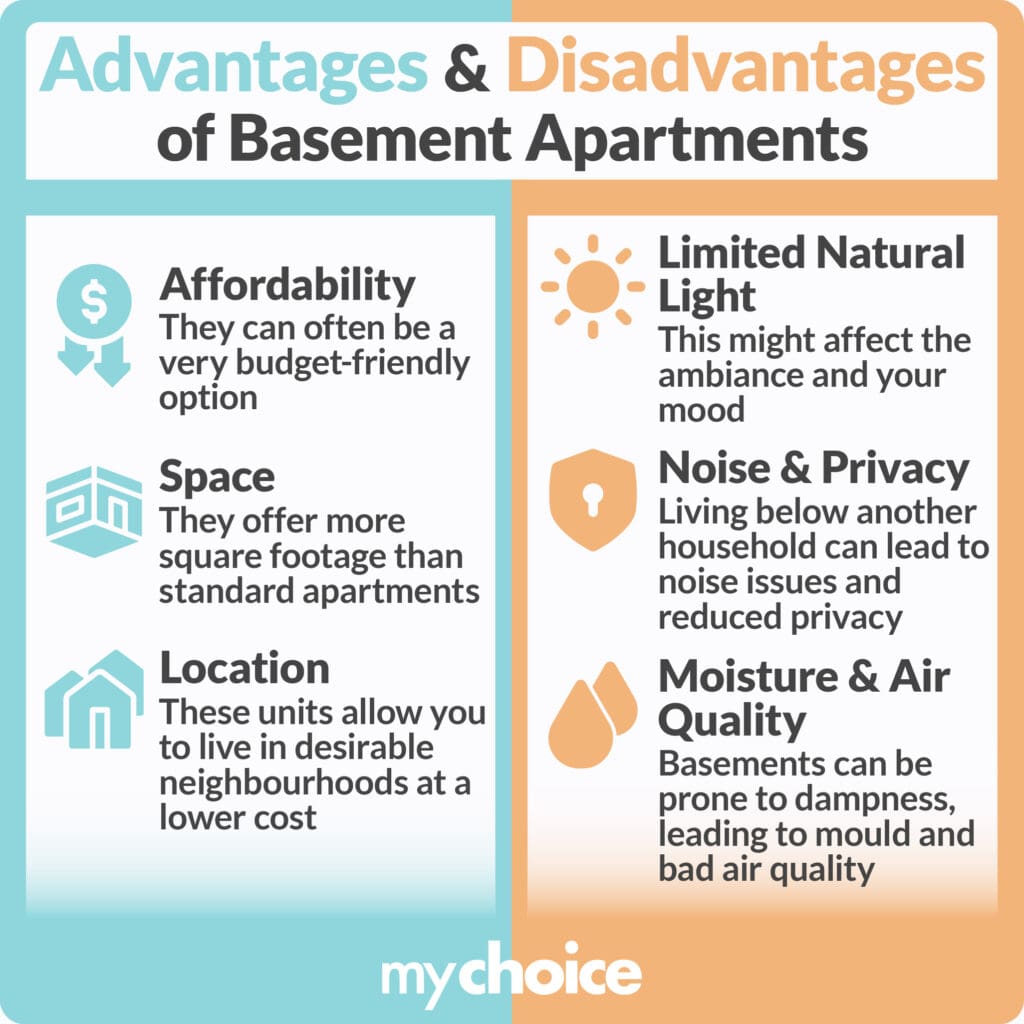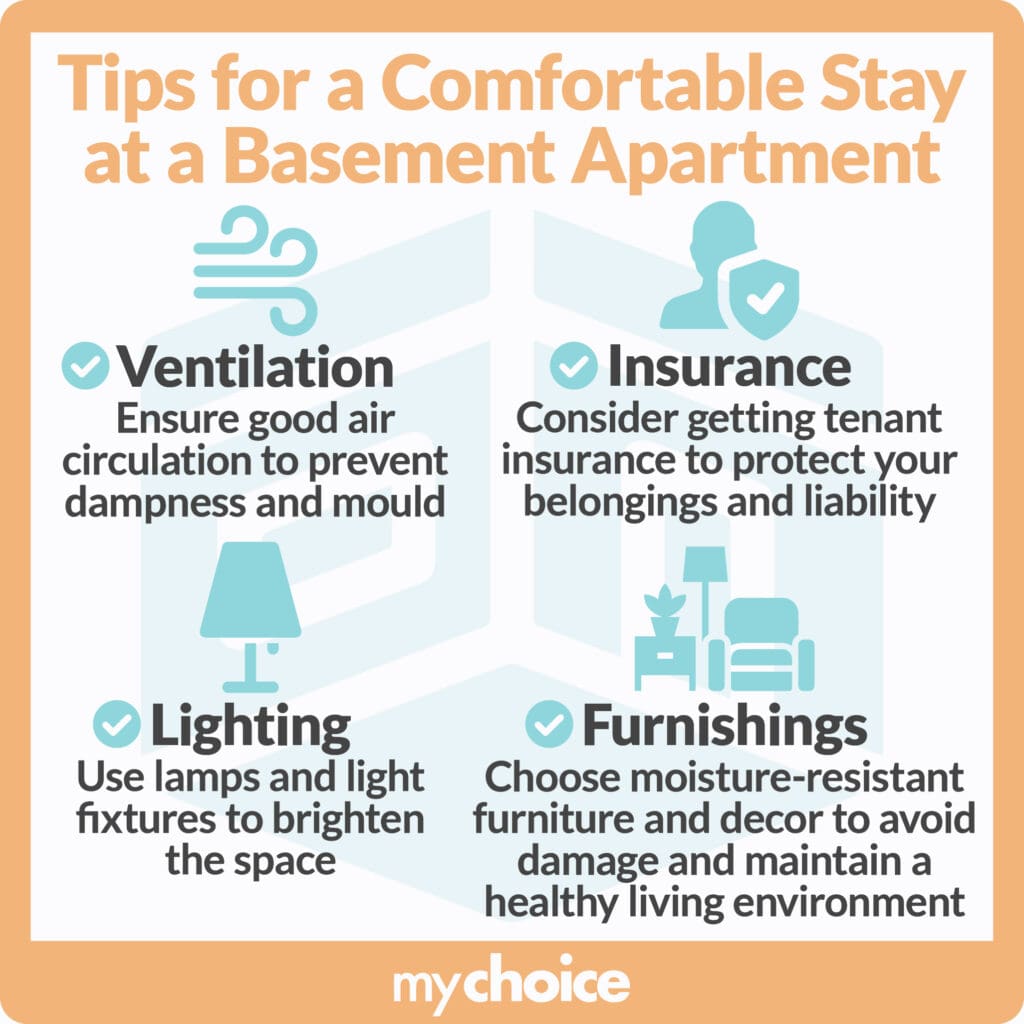When you’re on a budget, looking for an affordable living space can be a challenge, especially in Toronto where rent is considerably higher compared to other provinces. Basement apartments provide a good opportunity for people looking for an affordable, spacious area in a good neighbourhood.
Renting out a basement apartment in Ontario can help you save on your monthly living expenses. What should you ask the landlord before moving in? How can you make sure your basement apartment is legal? Read on to learn everything you should know about renting a basement apartment.
What You Need to Know About Basement Rentals in Ontario
A basement apartment is a separate living space in a house or apartment located at least partially below ground level, though it can be completely below ground level. Nearly 17% of homes in Ontario feature a secondary unit, with basement apartments being one of the most common types. Since most ground-oriented homes have a basement, many homeowners have converted their unused basements into secondary units as a way to make some extra income.
There are a few different types of basement apartments, differentiated by how far below ground they are, how much daylight they let in, and whether or not there’s a separate entrance away from the main house.
- Cellar apartments are what you typically associate with the term “basement apartment”. These units are at least 50% below ground level and typically feature small windows that are at ground level. These apartments typically don’t let in much light.
- Garden apartments are a little different from cellar apartments, with the living area located at least 50% above ground level. These apartments typically have bigger windows that let in more light and can be opened for some fresh air. Garden apartment typically have their own entrance at the ground level, and may include a small yard or garden at the back of the building.
- Daylight apartments are a type of basement apartment that has at least one full-size window or a sliding door. These apartments have the most access to natural light and are typically located at the bottom of apartment buildings or row houses.
Questions to Ask When Renting a Basement Apartment
Before you sign a lease, there are a few questions you need to ask the landlord to ensure that your basement apartment is an adequate living area.
Advantages and Disadvantages of Renting a Basement Apartment
Living in a basement rental has its pros and cons when compared to living in a house or apartment building.

Tips on Customizing a Basement Rental
Living in a basement apartment doesn’t have to be dark or claustrophobic. Follow these tips to increase your comfort levels:
- Keep your space well-ventilated to prevent mould and mustiness. Open windows or buy a stand fan to promote air circulation.
- Counter the natural dimness of a basement apartment by utilizing lamps and other light fixtures to brighten up your living area.
- Consider buying moisture-resistant furniture and room decor to avoid mould clinging to your belongings. You could also use a dehumidifier to keep the humidity in check.
- Protect yourself and your personal belongings by getting tenant insurance while living in a basement apartment..

Rental Insurance for Basement Apartments in Ontario
When renting a basement apartment, keeping yourself and your property safe is of high importance. Ground-level dwellings are at a higher risk of break-ins and damage from environmental or natural causes than other living spaces. To keep you and your belongings safe, consider getting tenant insurance before moving into a basement rental.
Many landlords will require you to have tenant insurance to move into their basement apartments, so budgeting for a policy is important. In Ontario, renter’s insurance can cost between $300 and $360 a year, which is much cheaper than home insurance. However, there are some key differences.
Tenant insurance doesn’t cover the building itself, but prioritizes the renter’s risks and their personal belongings. These policies typically give you monetary compensation in the event of loss or damage of personal items, though coverage may vary between specific companies and policies.
You can easily apply for tenant insurance online and you can opt to have your policy automatically renewed every year, saving you the headache of manual renewal. If you’re looking for the best deal on tenant insurance, MyChoice can help you compare all the options available in your area.
Key Advice From MyChoice
- Inspect the basement apartment thoroughly before signing a lease. Make sure that it’s up to the standards set by the Ontario Building Code and Fire Code to ensure your safety. Ask for proof of legality, such as an ESA Certificate or a Fire Certificate.
- Clarify details with your landlord regarding security features, shared spaces, utility bills, and potential health hazards. Don’t enter into a rental agreement before making sure everything is to your liking and comfort level.
- Tenant insurance is essential to keep your belongings safe in your basement apartment. Use MyChoice to shop around for the best tenant insurance deals available to you.








